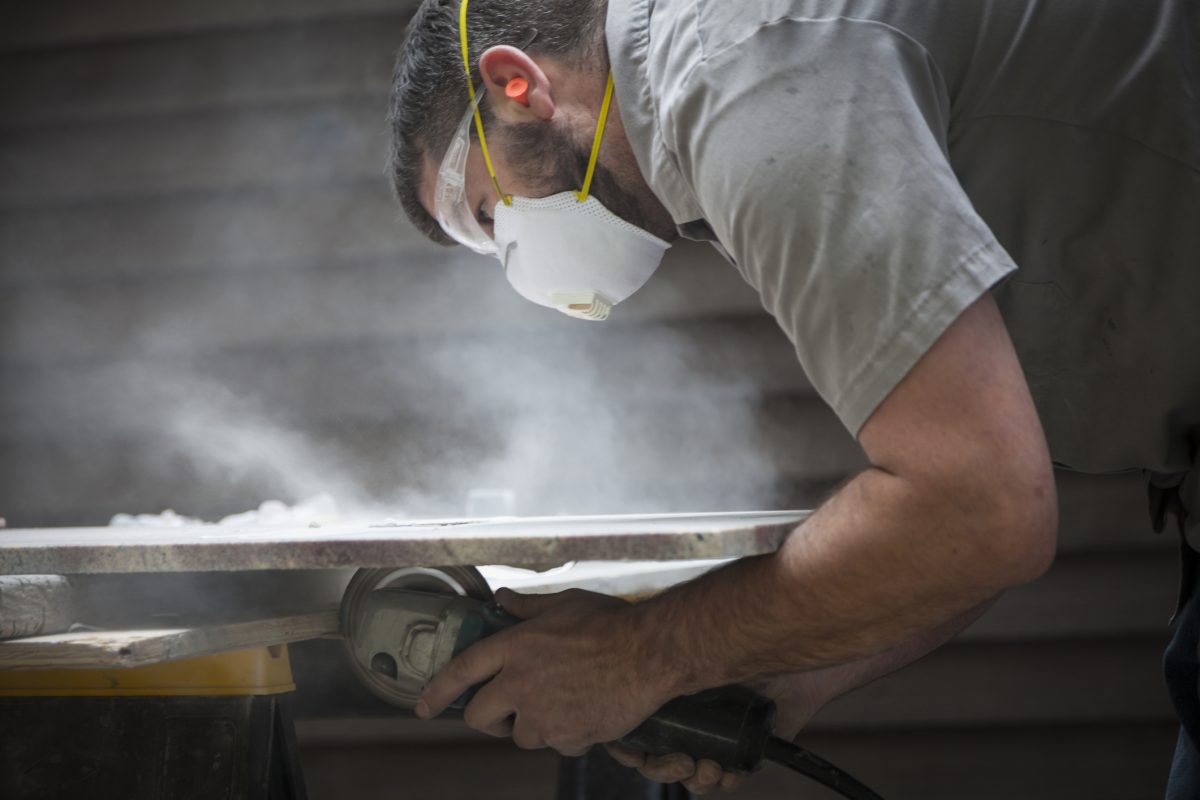
Silicosis risk is one factor compounding the ACT’s already problematic approach to workers compensation. Photo: iStock/ Bill Oxford.
The loss of a second workers compensation provider in the ACT in less than a year is a significant blow to the market and evidence of a troubled system, according to Allinsure director Peter Chamberlain.
Catholic Church Insurance (CCI) announced in May that it would cease issuing new or renewal policies and will voluntarily enter an “orderly run off” after it was unable to secure sufficient additional capital from shareholders to keep operations in line with regulatory requirements.
This meant ceasing new activity while the company had adequate assets to meet its current commitments to all staff, policyholders and suppliers, including funding its operations and settling all known claims and any yet unknown claims for existing policies.
Among its other insurance activity, CCI was one of only five remaining providers with an ACT workers’ compensation licence. While its market share was only about 2 to 3 per cent, the announcement came just 10 months after provider Zurich pulled out of the market.
For Zurich, rising costs meant the provider could no longer write insurance profitably in the ACT.
Mr Chamberlain said though the two providers together covered only 6 to 8 per cent of market share combined, the loss of 40 per cent of the ACT’s providers was a massive blow.
“We have only five providers now to service our client base. To lose almost 30 per cent of your options is a big issue and will have an impact,” he said.
ACT law stipulated anyone with a deemed worker was required to hold a current workers’ compensation insurance policy, but Mr Chamberlain said there was a twofold problem with how claims were settled in the Territory.
First, common law payments under workers compensation in the ACT were uncapped, resulting in astronomical premiums that were often cost-prohibitive for businesses.
“Uncapped common law provides judges the opportunity when a claim reaches litigation to award whatever they deem fit based on their perceived negligence by the employer and previous rulings,” Mr Chamberlain explained.
The second issue was that ACT’s workers’ compensation was fully commercialised, unlike most states and territories where it was run by the state government.
“Queensland has WorkCover, in NSW it’s iCARE … the government both sets and collects premiums and pays claims,” Mr Chamberlain said.
“Tasmania, WA and the ACT are commercial jurisdictions where insurers write policies with the aim to ultimately return a profit to its shareholders.
“In the ACT travel to and from work and between job sites is also covered by ACT workers’ compensation. You can imagine the impact a car accident or fall off your bike on the way to work would have on the claims trend in the local market.”

Allinsure director Peter Chamberlain said there was a twofold problem with how workers compensation claims were settled in the Territory. Photo: Michelle Kroll.
Amid ongoing insurance premium increases across the board, the losses did not bode well for competition in an already limited pool of workers compensation insurance providers.
“Lack of competition always negatively impacts pricing,” Mr Chamberlain said. “It also sends a strong message to those insurers with a licence to be wary of their profitability and underwriting choices, which is concerning.”
Mr Chamberlain said in states like NSW, where common law is capped and governments foot the bill, businesses are commonly seeing significantly lower premiums than in the ACT.
“We’ve seen clients paying in excess of 15 per cent on their workers comp. We see quotes come back from insurers in excess of 30 and 40 per cent on some accounts. That’s a massive per-employee oncost,” he said.
In addition to parishes, CCI also insured many local private schools, not-for-profits and other related local businesses. Its loss has been a blow to the Catholic community, according to Archdiocesan Financial Administrator Helen Delahunty, who said CCI had been a competent insurance firm for 112 years.
“Effectively as of 1 July we don’t have insurance on any of our 56 schools and 55 parishes, including lots of property,” she said.
“I’m confident CCI will be able to run it out in an orderly fashion, but of course things change and I guess we’ll find out when we find out.
“Bottom line is we need to hit the ground running to get new policies It’s not anything any of us wanted to do. I anticipate a minimum 12.5 per cent premiums increase.”
Mr Chamberlain hoped the government had an appetite for reform such as its relatively recent decision to change compulsory third-party liability payouts.
In the meantime, he said employers who best mitigate their risks through strong WHS practices, training, PPE and a proactive approach would enjoy the best rates in the market.
“But it’s important their broker is asking them to demonstrate what systems of WHS and risk management solutions they have in place rather than just marketing their policies based on simply estimated wages for the coming year,” he said.
“It will highlight the requirement of brokers to work closely with clients to achieve the best outcome in a challenging market.”





















